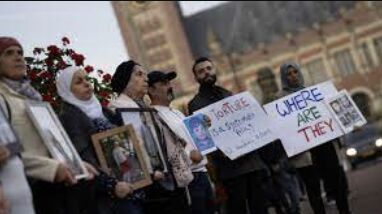UN Court Demands Action from Syria to Stop Torture and Inhumane Treatment
The International Court of Justice has ordered the Syrian government to take action to prevent torture and other forms of cruel treatment in response to a case filed by Canada and the Netherlands. The ruling is seen as a significant step towards combating abuse and impunity in Syria.
The United Nations' top court, the International Court of Justice (ICJ), has issued an interim order demanding that the Syrian government take action to prevent torture and other forms of cruel, inhuman, and degrading treatment or punishment. The order comes in response to a case filed by Canada and the Netherlands, accusing Syria of a prolonged campaign of torturing its own citizens. The court's President, Joan E. Donoghue, stated that Damascus must take all necessary measures within its power to prevent acts of torture, and ensure that its officials, organizations, or individuals under its control do not commit such acts.
The ICJ also instructed Syria to effectively preserve any evidence related to allegations of torture and other acts within the scope of the Convention against Torture, emphasizing the need for accountability. The conflict in Syria began in 2011 with peaceful protests against the government of President Bashar Assad. However, it rapidly escalated into a full-blown civil war after the government's brutal crackdown on demonstrators. The tide turned in favor of the Assad regime in 2015, with the support of Russia, Iran, and Hezbollah.
During the hearings, Canadian government lawyer Teresa Crockett urged the court to impose a binding order on Syria, warning that without intervention, Syria would continue to violate the international convention banning torture. Human Rights Watch praised the court's ruling, highlighting the importance of its implementation to protect Syrian detainees from systematic and widespread torture. It is worth noting that orders issued by the ICJ are legally binding, although compliance is not always guaranteed. Last year, the court issued a similar order regarding the conflict in Ukraine, calling on Russia to cease hostilities.
The recent orders from the court coincide with international arrest warrants issued by French judicial authorities for President Bashar Assad, his brother, and two army generals, accusing them of complicity in war crimes and crimes against humanity. The ICJ's ruling is seen as a significant step toward breaking the cycle of abuse and impunity in Syria. The UN Syria Commission of Inquiry hailed the decision as a landmark order to combat torture, enforced disappearances, and deaths in Syrian detention facilities. The commission emphasized that such violations have been a defining feature of the conflict and played a significant role in its prolonged duration. They urged other governments around the world to ensure the enforcement of the court's order, in order to prevent further abuses and bring about accountability.




